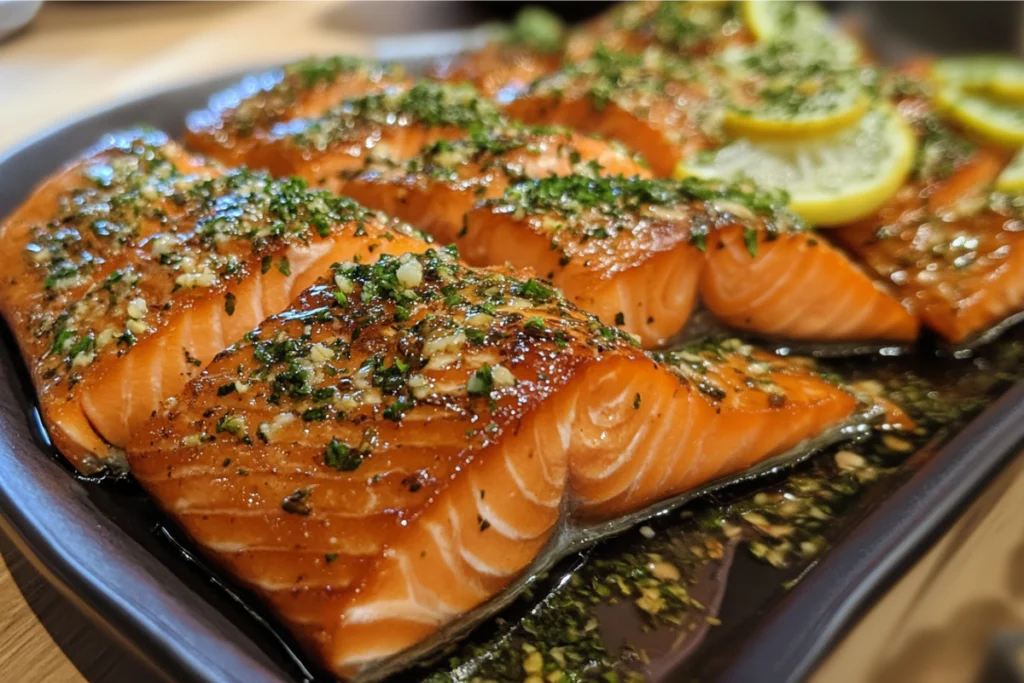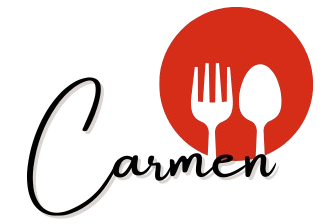
Smoked salmon is a highly sought-after ingredient, praised for its rich, smoky flavor and versatility in a range of dishes, from breakfast bagels to sophisticated appetizers. But because smoked salmon is a perishable food, it requires careful handling to preserve its freshness and avoid spoilage. Knowing how to store smoked salmon properly and how long it can last in the fridge is essential to fully enjoy its unique taste without compromising food safety.
In this guide, we’ll explore the different types of smoked salmon, their specific storage requirements, and the best practices to maximize their shelf life. For more information on smoked salmon varieties and storage techniques, The Ultimate Guide to Smoked Salmon on Carmen Recipes provides an in-depth look at the smoking process and various ways to use this delicious ingredient.
Understanding Smoked Salmon Types: Hot-Smoked vs. Cold-Smoked
When it comes to smoked salmon, not all types are created equal. The two main types, hot-smoked and cold-smoked, differ in preparation methods, texture, and flavor, which in turn affect how long they can last in the fridge and how they should be stored.
- Hot-Smoked Salmon: Hot-smoked salmon is smoked at a high temperature, which fully cooks it and gives it a firm, flaky texture. This process makes hot-smoked salmon more resilient and somewhat less perishable than cold-smoked salmon. Hot-smoked salmon is ideal for further heating in dishes or serving as-is.
- Cold-Smoked Salmon: Cold-smoked salmon is smoked at a much lower temperature, preserving its smooth, silky texture and leaving it only lightly cured rather than fully cooked. Cold-smoked salmon has a delicate structure and must be handled with more care, as it is more prone to spoilage.
If you’re curious about whether smoked salmon is cooked or raw, Is Smoked Salmon Cooked or Raw? offers insights into the differences between hot and cold-smoking processes and how each impacts storage needs.
Why Smoked Salmon Has a Limited Shelf Life
Although smoking and salting techniques are used to preserve smoked salmon, it still has a relatively short shelf life due to several factors:
- Moisture Content: Smoked salmon, especially cold-smoked varieties, retains some moisture, which can accelerate bacterial growth if not stored properly.
- Salt as a Preservative: While salt acts as a natural preservative, its effectiveness is limited once the package is opened, and it doesn’t prevent spoilage indefinitely.
- Packaging: Commercially vacuum-sealed smoked salmon generally lasts longer because the absence of oxygen helps slow down spoilage. Freshly smoked salmon or salmon packaged without vacuum sealing typically has a shorter shelf life.
These factors mean that proper storage and timely consumption are crucial for enjoying smoked salmon at its best.
How Long Does Smoked Salmon Last in the Fridge?
The shelf life of smoked salmon in the fridge varies depending on whether it’s opened or unopened, its packaging, and whether it’s commercially smoked or fresh.
- Unopened, Commercially Packaged Smoked Salmon: When properly stored in the fridge, unopened vacuum-sealed smoked salmon can last up to 2-3 weeks beyond its printed expiration date. However, always inspect it for signs of spoilage before consuming.
- Opened Smoked Salmon: Once opened, smoked salmon should be consumed within 5-7 days if stored in an airtight container in the fridge. Exposure to air can quickly reduce its freshness.
- Freshly Smoked or Local Salmon: Freshly smoked or locally sourced smoked salmon, especially if not vacuum-sealed, has a shorter shelf life and should be eaten within 1-3 days.
To maximize freshness, keep your refrigerator at a temperature between 32°F to 34°F (0°C to 1°C) to slow bacterial growth. For more on storage strategies, How to Store Smoked Salmon for Maximum Freshness provides valuable advice on extending smoked salmon’s shelf life.
Best Practices for Storing Smoked Salmon in the Fridge
Proper storage can significantly extend the freshness of smoked salmon. Here are some best practices:
- Use Airtight Containers: After opening, store smoked salmon in an airtight container or resealable plastic bag to prevent air exposure, which can lead to spoilage.
- Use a Moisture-Absorbing Paper Towel: Place a paper towel in the container to absorb any excess moisture. This helps preserve the texture of the salmon and delays spoilage.
- Avoid Cross-Contamination: Store smoked salmon separately from raw meats and other strong-smelling foods to avoid flavor contamination and reduce bacterial transfer.
Following these storage practices helps preserve the quality and safety of smoked salmon, allowing you to enjoy it over a longer period.
How to Tell if Smoked Salmon Has Gone Bad
Knowing the signs of spoilage is essential to avoid consuming smoked salmon that may be unsafe. Here’s what to look for:
- Texture: Fresh smoked salmon has a smooth, firm texture. If it feels excessively slimy or sticky, it’s a sign that it has started to spoil and should not be consumed.
- Smell: Smoked salmon should have a mild, smoky scent. If it smells sour, overly fishy, or otherwise off, it’s best to discard it.
- Color: High-quality smoked salmon is typically vibrant in color, ranging from pink to orange. If you notice any brown or gray spots, this could indicate spoilage.
It’s better to be cautious and discard salmon that shows any of these signs to avoid the risk of foodborne illness. For additional insights on smoked salmon safety, Is It Safe to Eat Cold-Smoked Salmon? explains more about safe consumption practices.
Can You Freeze Smoked Salmon to Extend Its Shelf Life?
Yes, freezing smoked salmon is a great way to preserve it for longer. Freezing not only extends its shelf life but also maintains its flavor and texture if done correctly. Here’s how to freeze smoked salmon:
- Portion the Salmon: Divide smoked salmon into smaller servings before freezing, so you can defrost only what you need.
- Wrap It Well: Wrap each portion tightly in plastic wrap, then place it in a freezer-safe bag or container to prevent freezer burn.
- Label and Date: Label each package with the date to keep track of how long it’s been frozen.
When properly stored, smoked salmon can last up to six months in the freezer. When you’re ready to use it, thaw the salmon in the refrigerator to retain its texture and flavor.
Creative Ways to Use Smoked Salmon Before It Expires
If you have smoked salmon nearing its expiration date, here are some delicious ideas to enjoy it:
- Smoked Salmon Pasta: Toss smoked salmon with pasta, cream, garlic, and fresh herbs for a rich and indulgent meal.
- Bagel with Smoked Salmon: Spread cream cheese on a bagel, add smoked salmon, capers, and thinly sliced onions for a classic and satisfying breakfast.
- Smoked Salmon Salad: Add smoked salmon to a salad with arugula, cherry tomatoes, avocado, and a lemon vinaigrette for a light and flavorful meal.
For more smoked salmon recipes, What Cheese Goes Best with Smoked Salmon? offers pairing ideas that enhance the flavors of this versatile ingredient.
Frequently Asked Questions About Storing Smoked Salmon
1. How long does smoked salmon last once opened?
Smoked salmon lasts about 5-7 days once opened if stored properly in the fridge. Keep it in an airtight container and check for signs of spoilage before consuming.
2. Can I eat smoked salmon after its expiration date?
If unopened and stored correctly, smoked salmon may be safe to eat up to a week past the expiration date. Always check for changes in texture, smell, and color.
3. Should I freeze smoked salmon if I can’t use it within a few days?
Yes, freezing is an excellent option to preserve smoked salmon. Wrap it securely and portion it for easy thawing.
4. Is a slight fishy smell normal for smoked salmon?
Smoked salmon should have a subtle smoky scent. If it has a strong, sour, or unpleasant odor, it may be spoiled.
5. Can I leave smoked salmon at room temperature temporarily?
Smoked salmon should not be left out for more than two hours. It should always be refrigerated or frozen to prevent bacterial growth.
Conclusion: Maximize the Freshness and Flavor of Smoked Salmon
Smoked salmon is a delicious, versatile food that can be enjoyed in many recipes, but proper storage is essential to maximize its shelf life and prevent spoilage. By keeping smoked salmon in an airtight container in the fridge, freezing it if necessary, and watching for signs of spoilage, you can safely enjoy this flavorful ingredient in a variety of meals. For further guidance on handling and storing smoked salmon, visit Carmen Recipes’ Ultimate Guide to Smoked Salmon for more tips on maximizing its freshness and quality.
